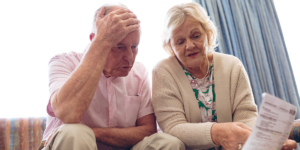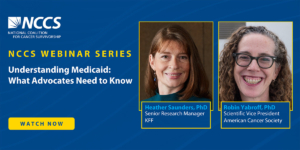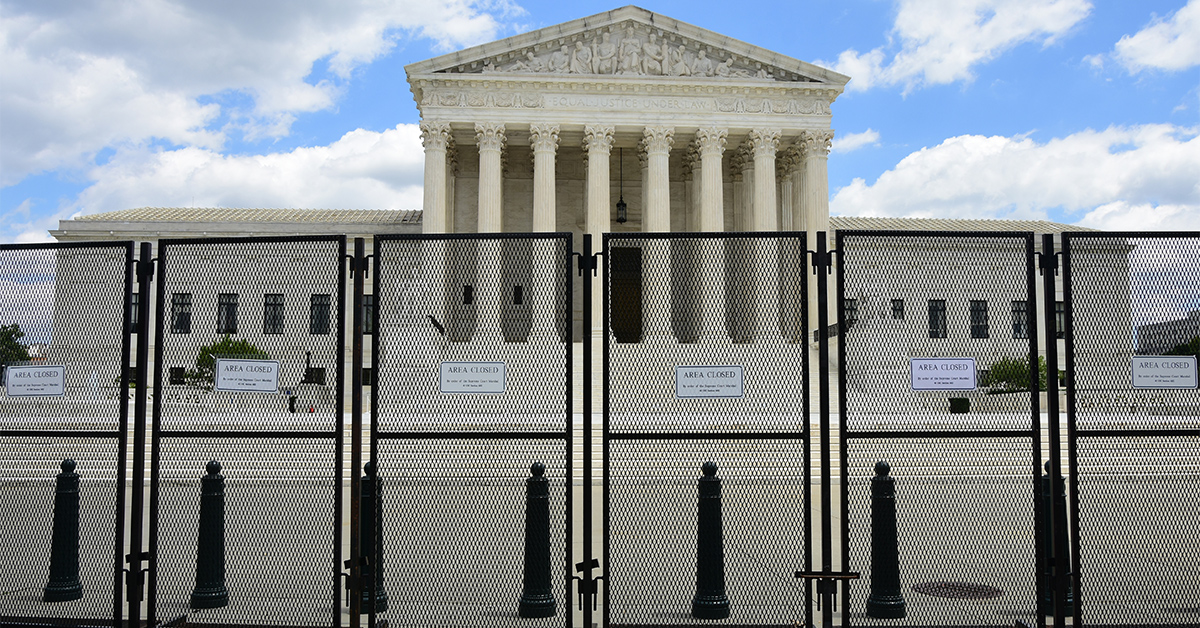Protecting Access to Medicaid for Cancer Survivors
More than 2 million people with cancer are enrolled in Medicaid; this includes 1 in 3 children newly diagnosed with cancer. For these cancer patients, Medicaid is a lifeline. It provides them with access to screening tests, early diagnosis, treatment after diagnosis, and long-term care to address the late effects of cancer and cancer treatment. Research shows people without insurance are more likely to be diagnosed at later stages and have poorer outcomes. Which is why we are working to ensure access to Medicaid programs, to provide every person facing a cancer diagnosis the best chance of survival.
Advocate Stories: Read how Medicaid cuts could put the cancer community at risk
Advocate Stories: Read how Medicaid cuts could put the cancer community at risk
Take Action Now!
- Call 202-224-3121 to be connected to the office of your Representative.
- Call your Member of Congress and demand NO cuts to Medicaid
- Cutting Medicaid is not just numbers on a page; it is a cut to health care for over 74 million Americans. Real people will be harmed by Medicaid cuts.
Webinar – Understanding Medicaid: What Advocates Need to Know
The National Coalition for Cancer Survivorship (NCCS) presents “Understanding Medicaid: What Advocates Need to Know.” Designed for cancer survivors, caregivers, and health care professionals, this session sheds light on Medicaid’s critical role in providing health coverage to 74 million Americans, including cancer survivors and their families.
During this educational webinar, we explore the essentials of Medicaid, including what it is, who it covers, and how it is financed. Viewers will gain insights into Medicaid’s importance in addressing health disparities and supporting cancer patients.
Robin Yabroff, PhD, Scientific Vice President at the American Cancer Society, and Heather Saunders, PhD, Senior Research Manager from the Kaiser Family Foundation, provide an overview of Medicaid’s structure, its importance for cancer survivors, and the potential consequences of funding cuts on access to care for the cancer community.
Dr. Saunders’ presentation covers how Medicaid is funded and who is eligible. She highlights how various proposed cuts to federal Medicaid funding could impact enrollees, noting that 20 million enrollees could lose coverage if the federal match for the expansion of the Medicaid program under the Affordable Care Act (ACA) were eliminated. Dr. Saunders also clarifies claims of waste, fraud, and abuse, and unpacks what improper payments really mean.
Dr. Yabroff’s presentation explores how medical coverage affects patient outcomes in cancer care, and how the ACA’s Medicaid Expansion has improved cancer mortality rates in states that expanded Medicaid versus those that did not. After their presentations, NCCS CEO Shelley Fuld Nasso moderates a Q&A with the speakers featuring questions from the audience.
This webinar is an essential resource for anyone seeking to deepen their understanding of Medicaid’s vital role in the U.S. health care system.
Medicaid Resources from KFF:
-
- KFF Medicaid Watch page tracks policy, polling, and news about Medicaid’s financing debate and related issues
- Medicaid 101
- The Essentials: Medicaid | Medicaid financing | Medicaid Managed Care | LTSS | 1115 Waivers
- 5 Facts about Medicaid and: Work Requirements | Fraud, Waste, and Abuse | Provider Taxes | People with Disabilities | Hospitals | Mental Illness | Medicaid Expansion | Chronic conditions
- State Health Facts
Visit our blog for this webinar’s slide decks, speaker bios, and other related resources »
Our Work
Sign up for our Healthcare Roundup Newsletter to receive the latest updates





